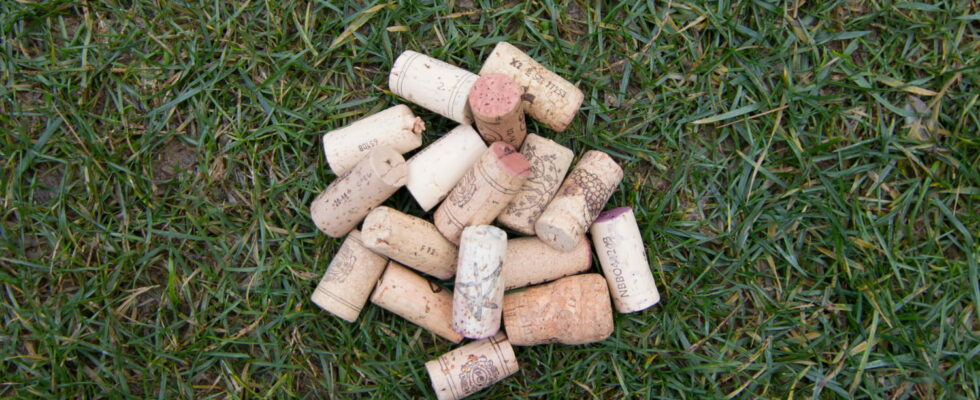Did you know that corks can be very useful in the garden? Don’t throw them away and recycle them, they have many advantages. Here’s how to use them.
Gardening is an art. To have a beautiful garden, a green lawn, pretty flowers and a vegetable garden full of vegetables, amateur gardeners are keen to take good advice from grandmothers and professional gardeners. Among these tips, there are classics like how to water properly, use fertilizers, etc. But one caught our attention for its originality and simplicity.
Planting corks in the garden is a method that is gaining popularity. Although it may seem unusual, this practice has many benefits. From regulating humidity to self-watering to pest control, cork is proving to be an important ally for environmentally conscious gardeners.
Corks are particularly useful for improving soil drainage. When buried, they act like sponges, absorbing excess water and helping to prevent the formation of stagnant puddles, thereby preventing root rot and mould. This is particularly beneficial in gardens with heavy, clayey soils, as the cork helps to aerate the soil and aid water circulation.

You can also use it for efficient watering. By scattering pieces of cork in the soil, near your plants for example, they will act as reservoirs and distribute the water slowly, which is useful for efficient automatic watering.
They can also serve as a natural barrier against certain pests. Their rough texture and natural composition make them unattractive to slugs and snails. By placing corks around your sensitive plants, you can create effective protection without resorting to chemical pesticides.
Another benefit of corks is their ability to insulate and protect plant roots. By placing them around the base of plants, you can help maintain a stable soil temperature, which is especially helpful during cold weather. The cork acts as a protective blanket, preventing roots from freezing and deteriorating.
And that’s not all. As the corks decompose, they release beneficial nutrients into the soil. This slow decomposition enriches the soil with organic matter, improving its structure and fertility. Soil microorganisms also appreciate this additional food source.
